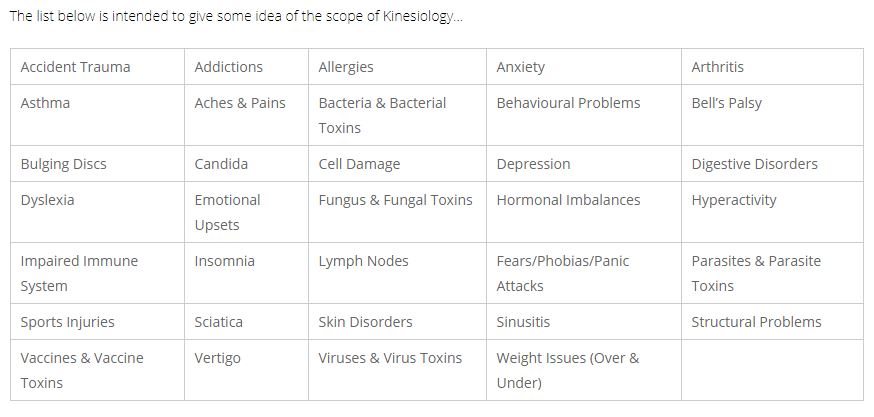Ailments
Sciatica
Sciatica is characterized by pain that starts off in the lower back or buttock and travels into one or both legs. Sciatica nerve pain frequently varies in its’ intensity and frequency, however generally there will be a component of sharp, jabbing or “electric shock” pains that radiate into the legs. Sciatica pain is also commonly associated with burning, numbness and tingling sensations. Muscle weakness is another frequent symptom of sciatica that requires careful monitoring. Typically, sciatica is exacerbated by bending, lifting, sneezing and coughing.
Sciatica is a widespread problem for manual workers, sedentary office workers and is particularly prevalent during pregnancy.
Back pain, neck pain , shoulder pain
Lower back pain is an extremely frequent situation with up to four fifths of the population having back pain at some time during their lives. Although the underlying cause of low back pain is usually not serious, it is a significant cause of pain in the community and has measurable impact on the economy due to time taken off work. Whilst the vast majority of patients with back pain will recover within six weeks, a small number will go on to develop chronic back pain and a gradual deterioration of functionality.
Causes of Back Pain Most causes of back pain are the result of irritation or poor function of the bones, joints, ligaments or muscles in your back. Such irritation can be the result of Vertebral dysfunction, a frequent situation that occurs when the spinal vertebrae distort or irritate the fragile nerve structures of your lower back. Alternate causes of lower back pain include inflammatory arthritis , and fractures due to osteoporosis. Back pain may also be ‘referred’ from another location. Rare conditions causing low back pain include cancer (usually from another source such as the prostate or lung), serious infections and compression of the spinal cord.
Kinesiology management of low back pain concentrates on restoring function to badly moving spinal joints, as well as reducing muscle tension and improving muscle strength. This results in enhanced motion, reduced pain and deceased nerve irritation. Using a gentle arm muscle test response we get clear information from the body about where exactly the stress is( Joints Discs, muscles, Ligament, tendons, Fascia), and what the body needs to relieve this stress. Joan uses many advanced pulse points, massage points and sound and light therapy which are highly effective chosen by the body.
Contact us to organise your complete back check up to help locate the exact cause of your back pain and begin a course of corrective Kinesiology care today!

Insomnia
Trouble falling or staying asleep is closely linked to stress and can be caused by various illnesses and medications. Advice: Avoid having excess caffeine, from the afternoon onwards, and alcohol, which causes broken sleep, and try having a high carbohydrate snack or hot milk shortly before bed as this can help stimulate insulin production. Eat plenty of magnesium-rich foods, such as almonds, cashews, bananas and dried apricots, as deficiency causes insomnia.
IBS Irritable Bowel Syndrome
It’s bewildering: yesterday’s takeaway lunch went down a treat, but today it’s going through my system like poured concrete. I feel just like that little frog in the ad for Motillium — bloated, lethargic and green about the gills. The way you might feel after packing away a full Christmas dinner, but all I’ve had is soup, a roll, a green apple and a low-fat latte. Sound familiar? If so, you might be one of the growing number of Irish people suffering from Irritable Bowel Syndrome, a disorder characterised by abdominal pain, bloating, wind, diarrhoea and/or constipation. The official figure is one in five, but most people have experienced some kind of stomach discomfort at some stage in their lives. If you’re lucky, it’s simply due to that spicy meal on holidays or that particularly busy spell at work, or too many sandwiches on the run. For others, though — muggins included — the little bloated Motillium frog is a frequent visitor. If, like me, you’ve tried all kinds of food regimes — wheat-free, gluten-free, low-fibre, high-fibre — with little success, then news of a new diet that offers a long-term solution to IBS seems too good to be true. “IBS symptoms are also common in other disorders like coeliac disease, Crohn’s disease, ulcerative colitis and bowel cancer. It is very important that you don’t self-diagnose. If you suffer with any of these symptoms, you should go to your GP, who will make a diagnosis and decide if you need further investigations,” she says. And I’m not alone in that; many people with IBS find that all types of fibre can make their symptoms worse. So why is it that eating in the modern age has become so complicated? In general, the experts agree, it is because people are consuming far more processed foods — convenience foods, ready meals and foods high in ‘resistant’ starches.
Resistant Foods high in resistant starches — like pulses, reheated food, ready-made meals, processed foods, muesli with bran, crisps, biscuits, cakes and dried pasta — were identified as causes of IBS in diet guidelines issued in 2008 by the National Institute for Health and Clinical Excellence. The Institute advised cutting down on those starches as a first line of defence and gave a lot of sound advice, for instance: eat regularly, take your time when eating, sit down to eat, chew food well, exercise and make time to relax. But that is not the entire picture. Stress is also a big factor. When a person is under pressure, it can affect the way nerve signals are transmitted to, and interpreted by, the brain. The result can be an extra-sensitive gut. “Everyone is so busy that there often isn’t time to cook and eat proper meals. Our lives have become so busy, sometimes we don’t even take enough time to go the bathroom. “Shift workers, in particular, can have problems because of their altered daily patterns.
Kinesiology is perfect to balance the digestive tract. Joan has had some fantastic results

